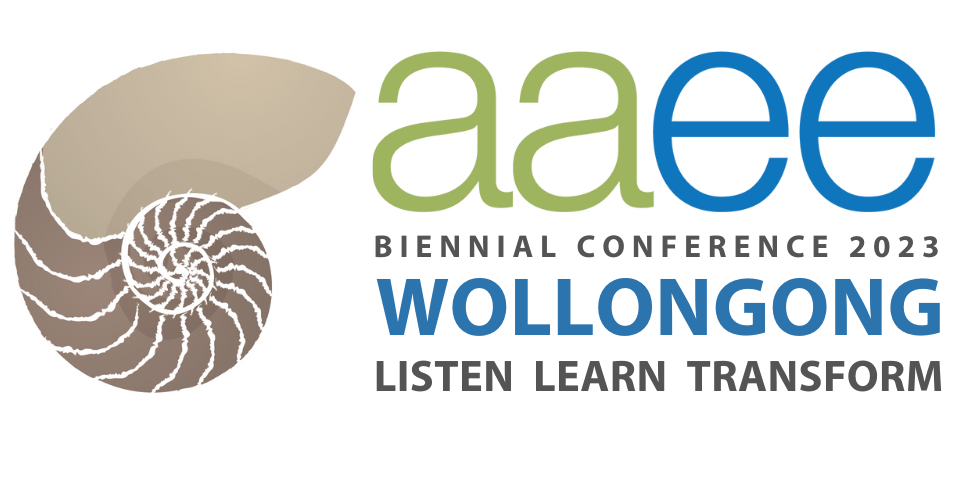2023 Speakers
Keynote Speakers
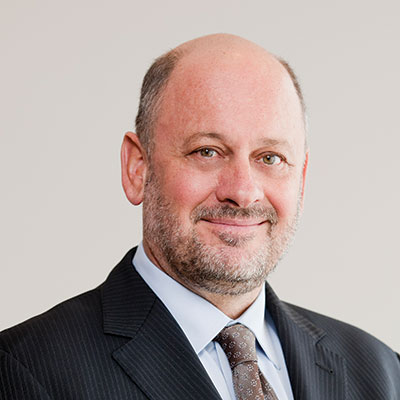
Prof Tim Flannery BA MSc PhD ASS
Chief Councillor, Climate Council
BIO
Professor Tim Flannery is one of Australia’s leading thinkers and writers on sustainability and the environment.
A scientist, explorer and conservationist he has undertaken over 20 expeditions to remote regions and written over 30 books. He was described by Sir David Attenborough as one of the great explorers, and as a scientist who’s discovered more new species than Charles Darwin. His landmark works The Future Eaters and The Weather Makers have changed the way we think about the environmental challenges facing the world.
Named Australian of the Year in 2007, he works with governments and businesses globally on climate change action. In 2011 he became Australia’s Chief Climate Commissioner, and in 2013 he founded and heads the Australian Climate Council.
In May 2021 Tim Flannery was awarded the prestigious Geddes Environment Medal by the Royal Scottish Geographical Society.
Prof Tim Flannery appears by arrangement with Claxton Speakers International.
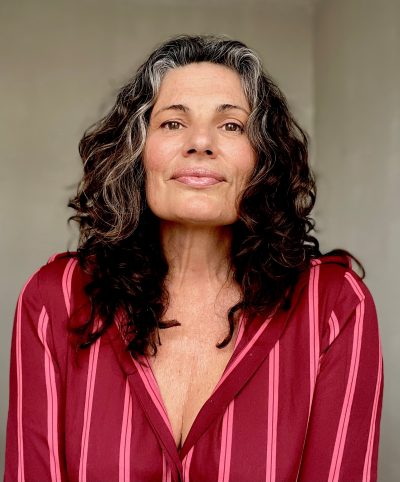
Gina Chick
Rewilding Facilitator
BIO
Gina Chick is an international rewilding facilitator, helping people of all ages learn to be at home in the wild.
Her nature connection programmes weave ancestral hunter-gatherer technologies into modern life, mining strategies that kept Homo Sapiens alive for 350 000 years for lessons to enrich our lives now.
She recently spent 67 days surviving in the subzero Tasmanian wilderness in the middle of winter, completely solo and often barefoot. She wove a waterproof shelter, slept in a hand-sewn possum fur coat and lived on fried worms, lizards, grubs, trout, eel and even a wallaby she jumped on one night while out for a pee. Gina filmed her adventures with a photographer’s eye for beauty and inspired 1.5 million people to look at nature differently along the way.
She runs Rewild Your Child camps eight weeks a year, where 200 people come together to create a village in the wilderness, focusing on nature connection. These were Australia’s first rewilding family camps and have been running for over a decade. She also runs solo wilderness rite of passage programmes and group survival quests.
The daughter and granddaughter of bestselling authors, Gina’s articles have appeared in The Guardian, News.com.au, Mamamia and SBS.com.au. You can find her hugely popular blog, Unmet Friends, on Substack. Her first book is due in 2024.
Gina’s presence is electric. She taps into universal chords of human experience, drawing from her experience and adventures worldwide to offer pathways through the wilderness within and without. Her stories of challenge, redemption and inspiration sing with warmth, depth and humour and offer resolution to questions of belonging and connection most humans struggle with. She is a 5Rhythms dance meditation teacher and singer-songwriter and often incorporates somatics and even song into her presentations. An hour with Gina is a journey through a vastly textured landscape, an adventure likely to leave you feeling inspired and connected and ready to embrace the wild in all its forms, possibly even without shoes.
Exclusively represented by Saxton
Invited Speakers
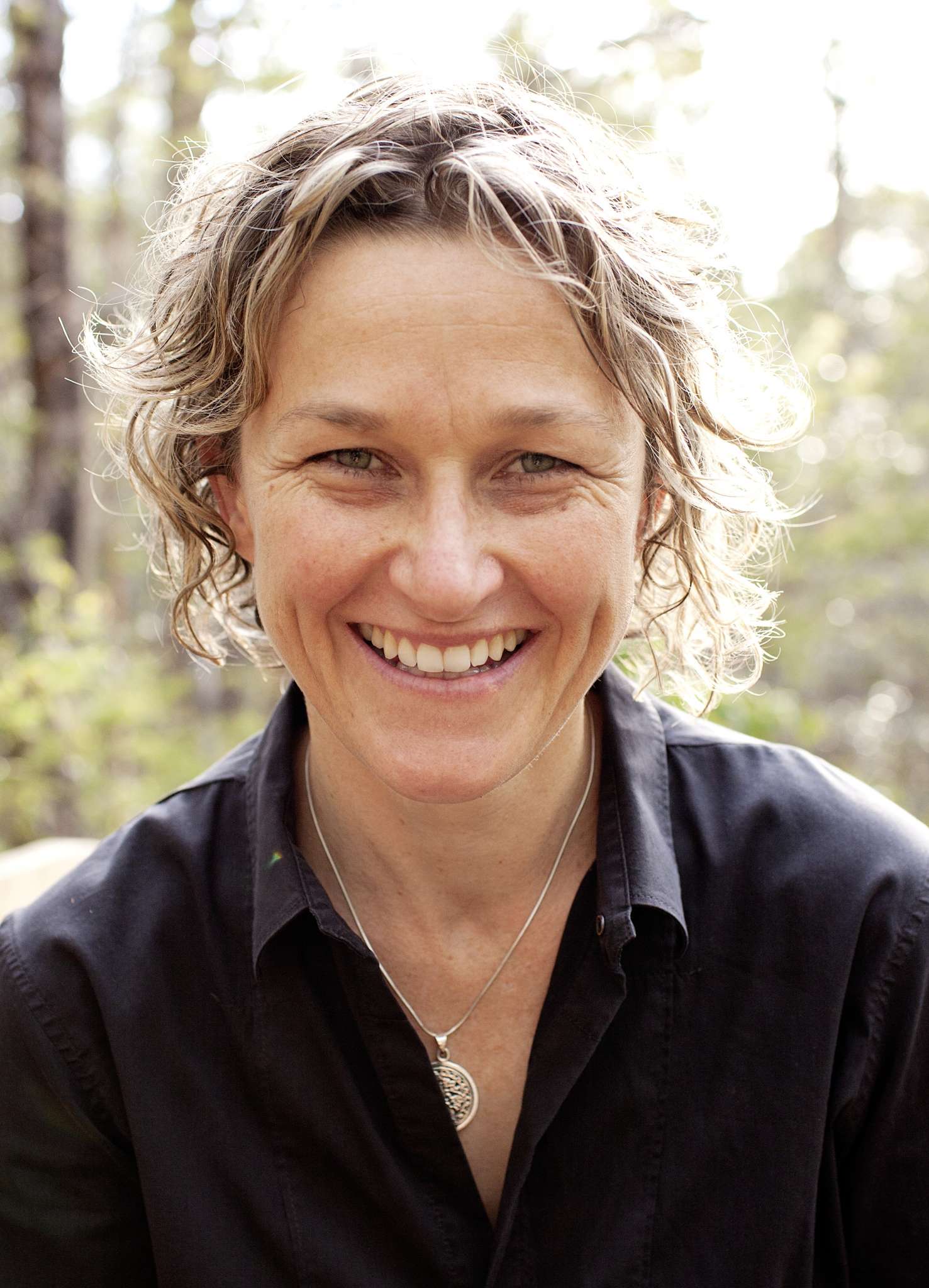
Dr Inga Simpson
Author
BIO & Abstract
BIO
Inga Simpson is an Australian nature writer with PhDs in creative writing and English literature. She is the author of Mr Wigg, Nest, Where the Trees Were, Understory, The Last Woman in the World, Willowman and, for children, The Book of Australian Trees.
Abstract – Imagining is perceiving
The nature in nature writing is more than inspiration and subject; it is the source. Human creativity stems from our connection to landscape and our relationship with the natural world. Of course, we are nature, too, just one small part of a series of connected ecosystems.
Contrary to what we would like to believe, creativity is not personal genius but the ability to tap into something larger than ourselves, to allow the wild wind of nature to blow through us. Language, imagination and story all originate in the earth, a mind-body awareness shaped by our local terrain and the other beings we share it with.
The tools for writing – vocabulary, specificity, imagery – come from nature, too. In the language of landscape, it is imagery, those intuitive word-pictures that convey so much more than the literal, that hold the power. Images allow room for emotions, room for that mind-body knowing, room for the unknown – and room for the reader. To think like a forest, Eduardo Kohn says, is to think in images.
We like to say that seeing is believing but to imagine is to perceive – to use all our senses to understand the interconnected relationships of a place, its past, present, and tomorrow. When we write (draw/paint/photograph/sing/play) nature, we rewild ourselves; we connect, we care, we are at home. And we can (re-) imagine a future other than the one we are currently rushing towards.
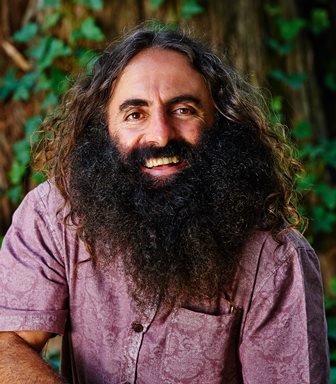
Costa Georgiadis
TV Presenter, Landscape Architect
BIO
Costa Georgiadis was born in North Bondi, Sydney, Australia on 1 January 1964. By nationality, he is an Australian, but he is of Greek descent. His grandfather’s market garden was only the one from which he had developed a love of nature.
Costa is a qualified Landscape Architect and studied at the University of NSW. Costa took off to Europe where he worked on and off for the best part of a decade working on roof-top gardens, community composting, natural swimming ponds and wetlands working in Vienna, Austria and Bavaria.
Costa believes in embracing and celebrating mother nature’s cycles and seasons and nurturing her balance, beauty and bounty organically. His holistic approach is all about gardening the soil and the soul. Costa’s charm, charisma and passion are invigorating and irresistible, he has a gift for making his important messages engaging and highly entertaining.
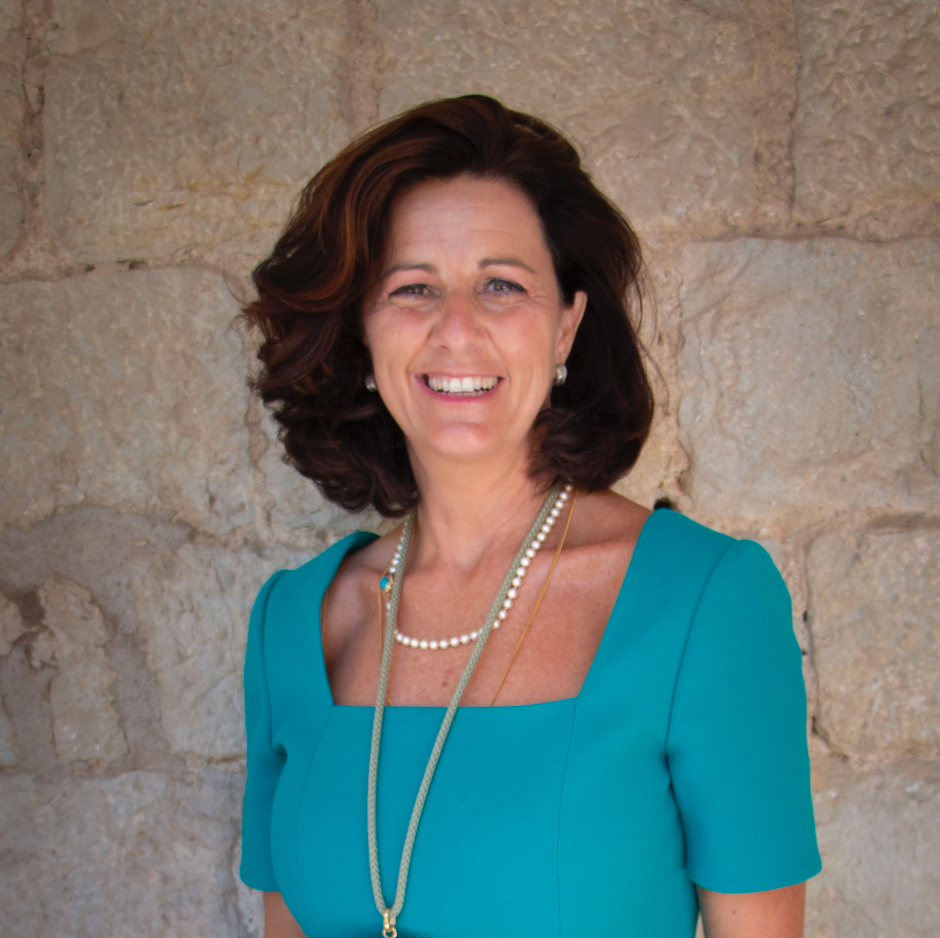
Prof Daniella Tilbury
UK Government Focal Point to UNECE and Fellow (Hon) University of Cambridge (Catz)
BIO & Abstract
BIO
An academic leader, change maker and educator in sustainable development credited with having developed the initial frameworks for learning in this area. She is an Australian who served a member of the Board of WWF that established EarthHour in 2007 and is a Fellow (Hon) of the University of Cambridge.
Abstract – Transforming the Future: are we there yet?
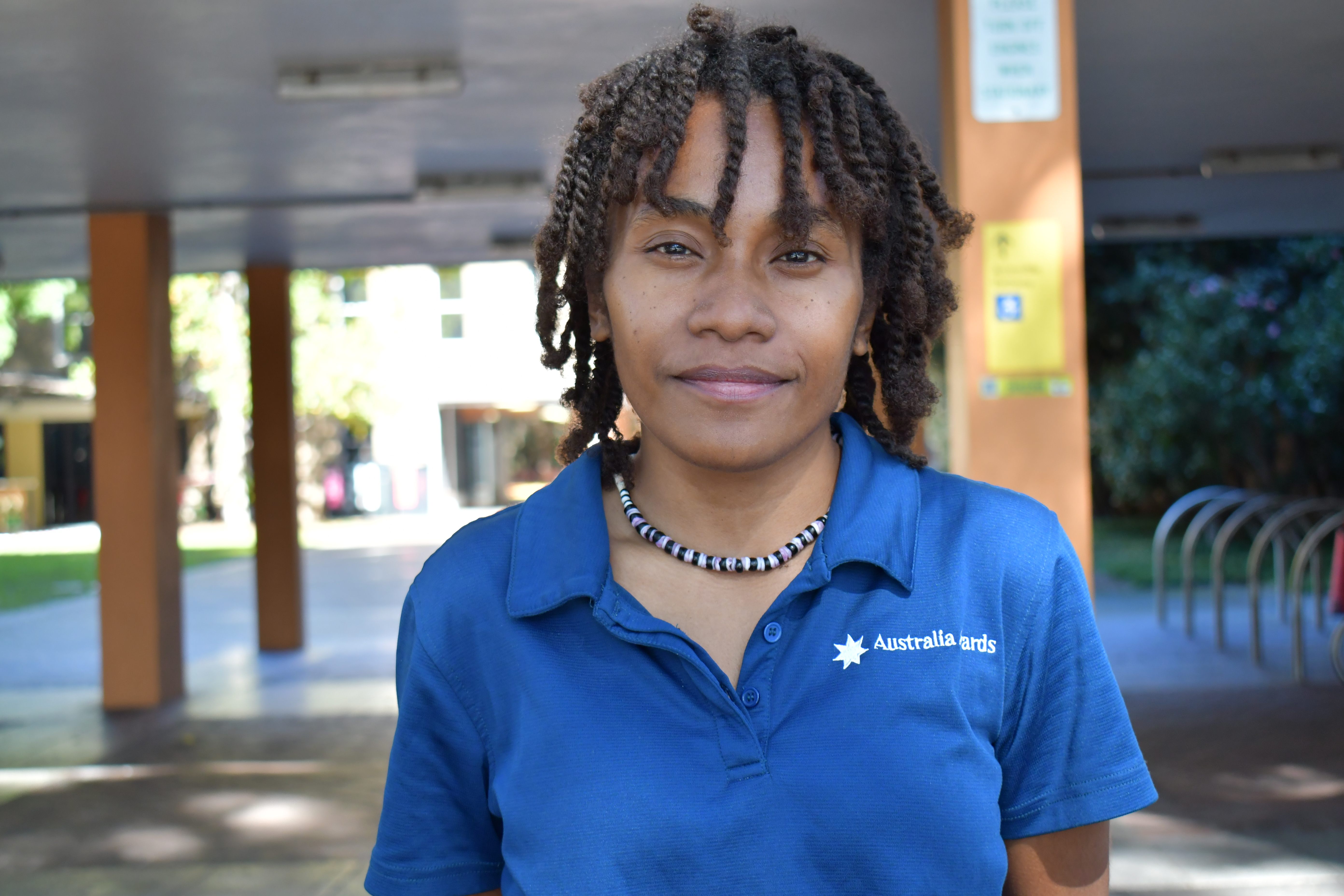
Cynthia Houniuhi
President, Pacific Islands Students Fighting Climate Change
BIO & Abstract
BIO
Cynthia is from the Solomon Islands with a Bachelor of Laws degree from the University of the South Pacific and is currently studying a Master of Laws at UNSW. She is president of a Pacific regional youth led organisation Pacific Islands Students Fighting Climate change, an organisation with the objectives to seek an advisory opinion from the highest court in the world and to educate and activate youth activism in the pacific regarding environmental issues.
Abstract: Taking climate change to the world’s highest court.
Cynthia will share how a group of young people from the pacific who are on the frontline of climate change’s adverse effects have banded together. These students are using law to bring about transformational change, progressing climate action on the global stage.
Education Panel
Current Education Landscape & Initiatives for Moving Forward
The Australian Association for Environmental Education is proud to present a thought-provoking conference panel titled “Current Education Landscape & Initiatives for Moving Forward.” This panel brings together five esteemed educators from various tiers of education who are passionate about environmental education and committed to shaping the future of learning in Australia. The panelists will discuss the current state of environmental education, highlight innovative initiatives, and share their insights on how to advance environmental education for a sustainable future.
Key Topics and Discussion Points:
- Current state of environmental education in Australia: Challenges, gaps, and opportunities.
- Effective pedagogical approaches to foster environmental consciousness in early learning and primary schools.
- Promoting environmental education within secondary schools: Innovative teaching methodologies and cross-curricular integration.
- Embedding sustainability principles across disciplines in higher education institutions.
- Vocational education and green skills training for a sustainable workforce.
- Community-based environmental education initiatives and the role of collaboration between schools and local communities.
- Addressing equity and inclusion in environmental education.
- Strategies for scaling up environmental education efforts across all tiers of education.
Expected Outcomes:
Participants attending this conference panel will gain valuable insights into the current state of environmental education in Australia and discover innovative initiatives and approaches for advancing environmental education across all tiers of education. The panelists’ diverse perspectives and experiences will provide attendees with practical strategies, resources, and inspiration to incorporate environmental education into their own teaching practices. By fostering collaborations and knowledge sharing, this panel aims to inspire a collective effort toward a sustainable and environmentally conscious future.

Dr Peter Andersen
BIO
Peter Andersen is a National Executive team member of Australian Association for Environmental Education and the Head of Students and Senior Lecturer in the School of Education at the University of Wollongong. Peter’s research and teaching interests lie in how to use the Australian Curriculum to empower students to become environmental change agents in their schools, homes and communities.

Dr Sue Elliott
Adjunct Senior Lecturer in Early Childhood Education, University of New England
BIO
Sue is a long-term early childhood education for sustainability advocate, researcher and author, she co-convenes the TransNational Dialogues in Early Childhood Education for Sustainability research group. Healthy sustainable futures for young children drive her work across the early childhood sector.
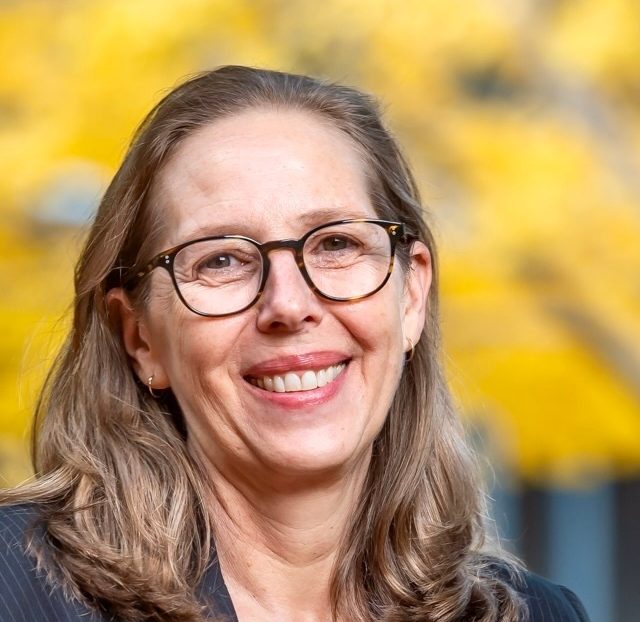
Prof Jo-Anne Ferreira
Dean, Learning and Teaching Futures, University of Southern Queensland
BIO
Jo-Anne is curious about enduring beliefs in environmental/sustainability education, and how these limit or enable our work. She’s interested in how digital worlds are entangled with us. Jo-Anne is always searching for the new, hence varied roles and career focus!
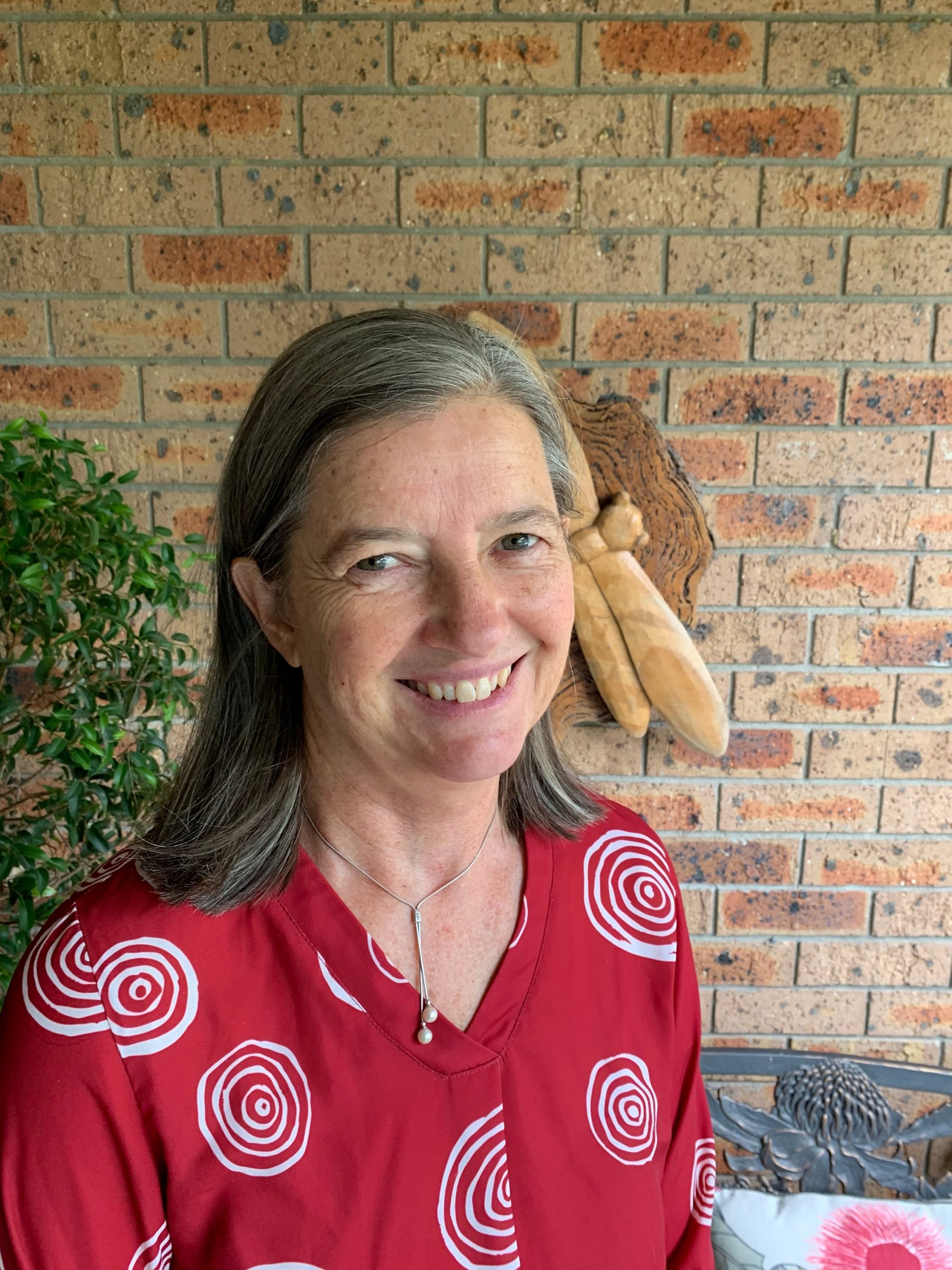
Sue Martin
Ecology Project Officer, Jesuit Province Australia
BIO
Sue is passionately involved in supporting environmental educators across NSW and is currently chair of EE NSW and helps coordinate AuSSA. Sue lives on Darug Country with the mighty Dyarubbin flowing through.
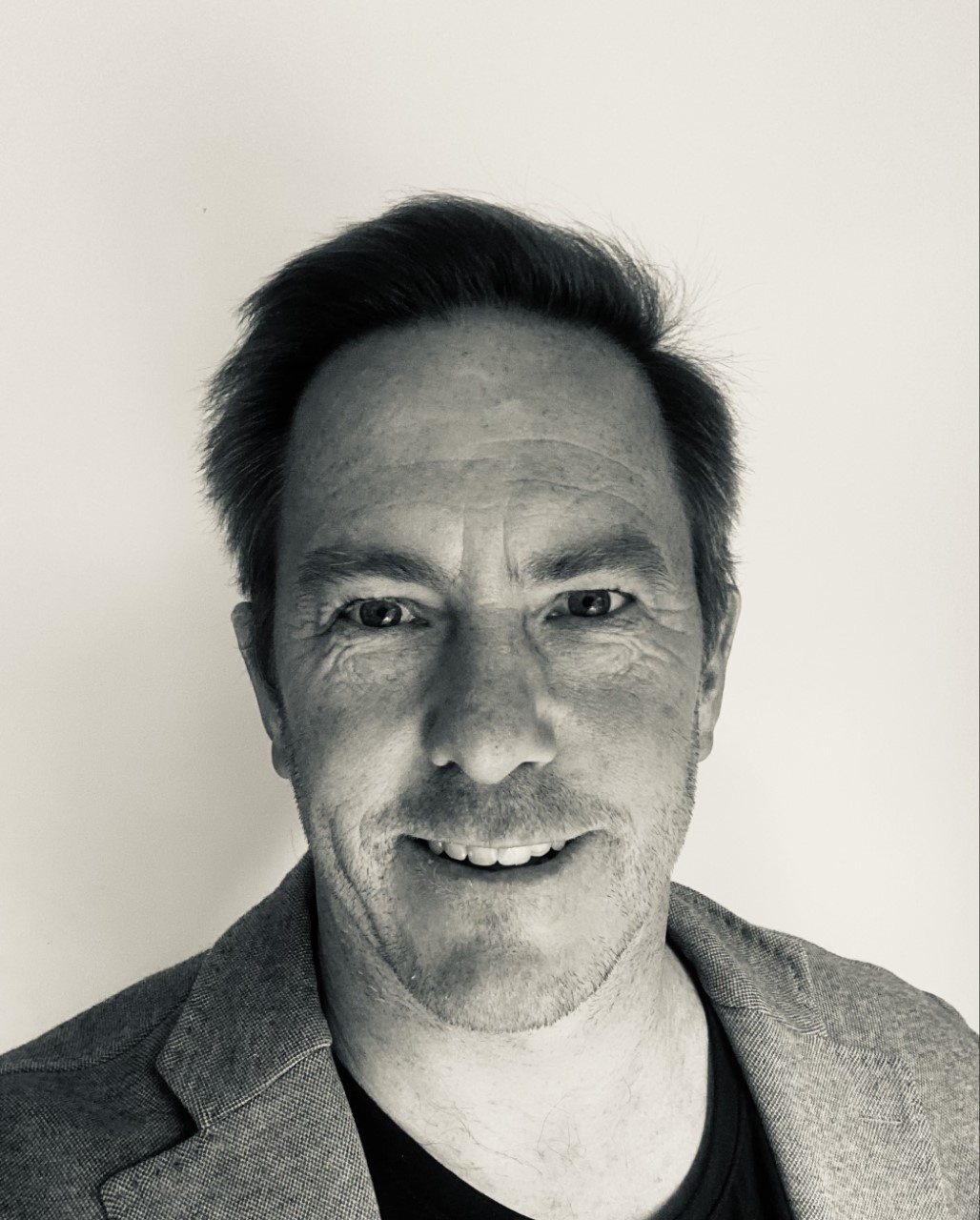
Simon Collier
Curriculum Specialist, ACARA
BIO
Simon Collier, Curriculum Specialist, Science, Australian Curriculum, Assessment and Reporting Authority (ACARA) is responsible for the Australian Curriculum: Science and the Cross-curriculum Priority: Sustainability. Simon is an experienced teacher and has worked in both Primary and Secondary classrooms. During his career as a school leader he has been involved in leading and implementing school-wide, regional and national initiatives.
Youth Panel
Future Thinking: A Youth Perspective
Year 11 and 12 students from Edmund Rice College and St Joseph’s Catholic High School, along with young people from the Sunshine Coast Council Kids in Action program will be our special guests on a panel called, ‘Future Thinking: a Youth Perspective’. Our AAEE NSW patron, Costa Geogiardis will host the panel. Our closing panel will present a unique view on what is to come in our sector, hearing the perspectives of our young leaders and their vision on how we can motivate and drive for a more positive and sustainable future.
Presenters
It is a long list, use control F / command F to search for the session you are looking for!
| Presenters | Abstract Title | Overview | Abstract |
|
Abbie Mitchell, Jane Goodall Institute Ben Howes, Jane Goodall Institute |
ReWild Your School | ReWild Your School (RYS) is a hands-on, curriculum aligned program tailored to investigate & actively promote local species | Link |
| Adam Shipp, Landcare Australia | Connecting Junior Landcarers with Country | From how to connect with your local First Nations community to learning activities to help kids connect with each other and the landscape, join Adam for an immersive workshop to help you get the most out of the Junior Landcare Learning Centre and its growing collection of First Nations perspectives resources. | Link |
| Agatha Gambino, Bunyaville Environmental Education Centre | Inspiring and enabling early childhood educators to embed Aboriginal and Torres Strait Islander perspectives in their practice. | Inspiring and enabling early childhood educators to embed Aboriginal and Torres Strait Islander perspectives in their practice. | Link |
| Alice Carwardine, Caritas Australia |
Living and modelling a zero-waste classroom |
– Strategies for waste reduction and resource management within the classroom – The importance of role modelling and explicit teaching – Goal 12 of the United Nations Sustainable Development Goals |
Link |
|
Amanda Lloyd & Christian Eckhart, Greater Sydney Parklands
|
Outdoor Learning: Transforming Pedagogical Thinking and Practice. | Throughout the workshop we will specifically look at how outdoor learning is a way to deliver environmental education concepts. Looking at connection to place to develop environmental advocacy. This is fun, highly engaging, and participatory workshop where you will learn from each other and your facilitators. It is an opportunity to learn skills and refresh your outdoor learning toolkit. | Link |
| Angela Lunda, University of Alaska Southeast | “I’m a Killer Whale” – The process of cultural identity development from the perspectives of young Indigenous children | Participants will walk away with a deeper understanding of the process of cultural identity development and the importance CID plays in the overall health and wellbeing of Indigenous children. | Link |
| Ann Burbrook, Green Connect |
Meet your Meat… and veggies. | Introducing people, especially young people, to growing and nurturing food on an urban farm where they can experience the complexity and the simplicity of food production has the potential to bridge the disconnect between people and their food. | Link |
| Ann-Kathrin Kiehn, Koala Smart | Koala Champions! What can you do to save the koala? | The participants have a full understanding of the Koala Smart program and the resources that are available to them. The Presentation has clearly demonstrated that education can address the critical decline in Australia’s declining koala populations. By Learning Together this is an opportunity for student voices to be heard and empowered to make a difference through engaging and innovative hands-on learning! | Link |
| Ash Markstone, Stephanie Beaupark, Crystal Arnold, University of Wollongong |
Reclaiming Sovereignty through Holistic Environmental Education: Indigenous Perspectives from Country | Led by three First Nations women, this presentation and workshop propose a three-step approach to highlight Indigenous knowledge of environment, science, and art to listen to and heal Country in Australia. Indigenous environmental protection movements, listening to Country to identify its specific needs, and utilising Country’s healthy components to create and connect through Indigenous art practices are all closely interwoven aspects of an overall obligation to care for and connect to Country. |
Link |
| Ashley Kelly, Central Coast Council | Community Changemakers’ Course to create ambassadors for our environment. | The tangible output of a Changemakers’ Course is to protect and restore the environment, but instead of focusing on the ecology, we take an innovative approach by focusing on human values and attitudes. In order to conserve biodiversity and protect and restore our ecosystems, we aim to change people’s behaviour and increase advocacy. We have designed this social enterprise program to increase motivation and facilitate community-led action, with very successful results. | Link |
| Belinda Christie, Deakin University |
Compost research learnings through the lens of systems change and social justice: A call for more than just education. | This presentation will critlcally reflect on the outcomes of community composting academic action-research through a social justice lens. It seeks to explore how and why we need to make a deeper commitment to pursing social and economic justice within our sustainability and education programs alongside our environmental goals. |
Link |
| Bronwyn Greive, Fosterton Retreat |
Earth without art is eh! Fuelling people’s love for their local environment (endemophilia) using Natural History Illustration practice. | The art practice of Natural History Illustration can be used by anyone, thus it can be a useful component in school and community environmental education. | Link |
|
Caitlin Lawrence, Petaurus Education Group Inc. Alice McGrath, NSW Biodiversity Conservation Trust |
Conservation Champions – Empowering our Future Environmental and Cultural Custodians | – Conservation Champions is a model program that can be replicated at a school, community or regional level – Hands-on learning occurs best when connected with the local community – Conservation Champions has free resources and Professional Development to support teachers in running the event – To truly build the capacity of youth in protecting our vital ecosystems, young people need to be shown in a diversity of methods rather than told. |
Link |
| Ciska White & Kelly Stock, Office of Energy and Climate Change, NSW Treasury |
Collaboration in place: Adaptation in action! | This presentation explores opportunities for collaboaration in place through knowledge partnerships and on-ground action for managing the impacts of climate change in our communities. Case studies will be used to share powerful stories of adaptation in action, highlighting opportunities for educational and research institutions to partner with communities to deliver innovative and impactful projects to build resilience and inspire action. | Link |
| Cyrelle Field, Sustainability Victoria |
Sustainability in schools – State and Territory Government Roundtable | State and Territory Governments supporting sustainability in schools through programs and policies. | Link |
| Dayle Fulford, Tallebudgera Outdoor and Environmental Education Centre (Education Queensland) |
The Red Thread– a model to construct purposeful outdoor journeys, calling students on a transformative adventure. | Designing learning journeys around engaging narratives and a student-centred purpose improves student engagement, promotes student voice and can lead to transformative outdoor learning, not just outdoor experiences. | Link |
| Deborah DeBuhr, Deakin University |
Using a knowledge-empathy-action framework to incorporate climate change education across the curriculum | Effectively extending sustainability ideas to climate change education, in response to the climate crisis, in ways that foreground a triple focus of knowledge-empathy-action. | Link |
| Deidre Knight, Australian Association for Environmental Education SA Chapter |
Seeds for Change – Community Leadership | PAR and Relational Values Research were employed to listen to and respond to this community’s issues and needs, Time invested in listening reaps rewards, The value of persistence, Individual and community skill richness, This community’s unique recruitment strategies, Education for Sustainability through a community lens, The importance of visibility – eg propagation events, signage, social media, How warmth and generosity breed community confidence to be change agents, Emerging leaders, Where to from here? | Link |
|
Department of Climate Change, Energy, the Environment and Water
|
The State of the Environment Educational video | Watch the new state of the environment educational video, share it with you colleagues and your classrooms. Start the conversations to make an impact, and heal Country. Our future, wellbeing and prosperity depend on it. | Link |
| Devika Rathore, The University of Waikato |
Listening to children and the environment: migrant teachers’ voices from Aotearoa New Zealand Early Childhood Education. | The study highlights the need to value and support the numerous and diverse cultures that are part of Aotearoa New Zealand Early Childhood Education (ECE). | Link |
| Fran Hughes, NSW Early Years Nature Connections |
Jumping in the puddles of sustainability through immersive nature play programs (INNPs). | Educators must be intentional in supporting children’s developing understandings of sustainability. INPPs offer a myriad of puddles to jump into, as educators explore sustainability and citizenship with children. | Link |
| Fumiko Noguchi, JICA Ogata Research Institute |
Integration of local knowledge in sustainable community development for climate change adaptation and empowerment of vulnerable community peoples | The mechanism to support the equal and fair dialogue and collaboration between experts and indigenous/local communities is necessary for climate-adaptive and sustainable community development. | Link |
| Genevieve Quirk, Australian National Centre for Ocean Resources and Security | Learning from Oceania: Connection and Integration to govern an Ocean Continent | Oceania has a highly integrated regional system of governance over an Ocean Continent Australia can learn and return to the integrated approach to oceans governance previously envisioned under Australia’s Ocean Policy. Environmental education plays an important role in situating marine ecosystems within the regional scale to aid the public’s understanding of oceanographic and ecological connections that will help to promote integrated oceans governance. | Link |
| Hannah Berning, Ara Institute of Canterbury, New Zealand |
Ahi|Fire: a praxis to engage and whakawhanaungatanga (build relationships) | – Fire has been identified as key risks for the Australasian region, but it is also one of the oldest practices that is part of every culture on this planet. – (Environmental) education in Australia and Aotearoa New Zealand is political and embedded in multiple cultures and, thus, needs to be critical and bicultural. – Ahi| fire can support whakawhanaungatanga| relationship building, which goes beyond ākonga-ākonga relationship and includes kaiako as well as the more-than-human world; – (Camp)fires provide opportunities for Engaged Pedagogy through open dialogues and sharing. |
Link |
| Henrietta Mooney, Hunter Reigon Field Naturalists & Nature Journaling Club |
Nature journaling as a path to deep ecology | Connect with nature in creative ways. Anyone can do nature journaling, no art or writing experience is necessary. |
Link |
| Hollie Kempton, OzHarvest | OzHarvest’s FEAST Program: Fighting Food Waste in High Schools | Education is crucial to OzHarvest to help enable positive change, inspire future change makers and reduce food waste. This presentation has been developed for educators and will address how the OzHarvest’s FEAST program can be implemented in all high schools as part of the Year 7/8 Food technology learning area. | Link |
| Imogen Ross, Coledale Public School | Connecting Threads: transforming textiles from waste into weavings | Connecting Threads: transforming textiles from waste into weavings | Link |
| Inday Ford, Marine Stewardship Council | BIG BLUE FUTURE – INSPIRING THE NEXT GENERATION OF OCEAN HEROES | A key objective of the UN Decade of Ocean Science for Sustainable Development is to boost ocean literacy in the formal education sector. The aim is to create a new generation of ocean leaders by 2030. Ocean literacy is defined as “an understanding of the ocean’s influence on you and your influence on the ocean”. The MSC’s education program Saltwater Schools aims to build public support for sustainable fishing and inspire young people. | Link |
| Inga Simpson |
Imagining is perceiving | The nature in nature writing is more than inspiration and subject; it is the source. Human creativity stems from our connection to landscape and our relationship with the natural world. Of course, we are nature, too, just one small part of a series of connected ecosystems. | Link |
| Jayne Alba, Oxley Park Public School |
Kitchen Garden Programs – Learning together for a sustainable future | The Department of Education has released 9 sustainability goals for 2030 and 27 actions for 2023. This target measure aligns with Australia’s commitment to the United Nations Sustainable Development Goals. The Department of Education also has 5 sustainability priorities. The presentation will explore the goals, actions and five priorities on how school communities can begin to plan and explore ways in which to achieve these goals by incorporating sustainable practices like kitchen garden programs. | Link |
| Jennifer Pearson, Little Green Steps WA | Little Green Steps WA – Sustainability in Early Years | Learn how to achieve sustainability in early years settings through the “Social Handprint and Ecological Footprint” framework. Review resources that support change to practices in practical ways. | Link |
|
Jordan Harrison, University of Canberra Monty Nixon, University of Canberra |
country as teacher, a critical pedagogy of place? | Through mentorship and actively cultivating a personal ‘Relating with Country Practice’ teachers are able to facilitate Country as Teacher experiences for their students: speaking back to systems of educational governance and accountability thereby enabling students to ‘learn about and care for the ecological and social wellbeing of the communities they inhabit’. | Link |
| Jules Laurent |
Reaching to the unconverted – how insights from Waste management become a creative educational tool, for deeper understanding of complex environmental issues and respecting nature. | The Waste sector provides comprehensive and fruitful pathways for transformational learning about the environment and behavioural change for living in harmony with nature | Link |
| Julia Barnes, WaterNSW | The value of collaborating across different disciplines for environmental health and management- a catchment protection case study. | This presentation provides a case study of WaterNSW and Council partnerships, formed to work towards a common vision for improved urban water management and water sensitive towns. The session will challenge the audience to reflect on ways they can increase collaboration with stakeholders by encompassing cross-sector outcomes into their own environmental education projects. This presentation is targeted towards an audience seeking to collaborate and align the value of their cause with internal or external stakeholders or those looking to expand the sphere of influence of their programs.” | |
| Karen Jones | Inspiring awe, wonder and pro-environmental behaviours | “Awesome” is one of the most craved human experiences, and this presentation/workshop will bring to life the science of awe and wonder, and how you can prime your audiences for deeper learning. | Link |
| Kids in Action Program, Sunshine Coast Council | Kids in Action: A transferable model of learning shaping the next generation of environmental custodians operation. | The Sunshine Coast Council’s Kids in Action Program demonstrates a model of genuine intergenerational, participatory project-based and peer-to-peer learning exchanges, that fosters genuine partnerships and relationship for program agency and co-design. The transferrable learnings of this program are applicable to a diversity of contexts and may assist you with transforming cultural change through your practice. | Link |
| Kim Beasy, University of Tasmania |
Storying artefacts and creating teachable moments with water[shed] | The flooding of Lake Pedder in the early 1970’s gave birth to Australia’s first Greens political party. An exhibition to mark 50 years since the flooding was supported by Outside The Box / Earth Arts Rights alongside an education resource that illustrates possible interdisciplinary teaching and learning opportunities. In this presentation, the education resource is shared as a means of exploring interdisciplinary learning about the degradation of ecosystems, and the examination of complex social, cultural and environmental imperatives. |
Link |
| Larraine J Larri, The Cairns Institute, James Cook University, Cairns, Queensland, Australia | Nannagogy in action: this is what an older women’s eco-feminist education looks like | Learn how older women learnt to became visible and vocal as their own environmental activist identity. This is called ecofeminist social movement learning. It is a specific form of environmental adult education. Come and hear how and why these women managed their own transformative learning. Enjoy their journey to be agentic activists and become transformed by their gutsy non-violent direct action “sit, knit, plot and bear witness” strategies. If they can be activist, anyone can be an activist. |
Link |
| Laura Skates, Perth NRM |
Turning Gardeners into Conservationists: citizen science for conserving urban wildlife | The Turning Gardeners into Conservationists project used a citizen science approach to empower and upskill residents to garden for wildlife, contributing to our understanding of urban biodiversity and its conservation. The project highlights the important role that residents can play in providing habitat through actions in their own home gardens, and the benefits this can have not only for wildlife but for people too. |
Link |
| Leonie Netting, North Sydney Council | The Coal Loader: Creating Community | The Coal Loader Centre for Sustainability showcases grassroot learning and behaviour change by creating connected communities actually living a sustainability ethos. | Link |
| Les Robinson, Changeology | Funology: how to add irresistible magnetism to any people project | We’ll look at James Webb Young’s “A technique for producing ideas”, then practice a fun facilitation method for generating our own original mashups to add pizazz to our next people project. Guaranteed universally useful. | Link |
| Linda Tohver, Samala Heart, North East Waste (and Ballina Shire Council) | Collaborative leadership: Driving regional and Council Transformation in the Waste and Resource Recovery Sector | Through collaborative leadership, transformative partnerships can begin to occur, which strengthen the effectiveness and efficiency of education /community engagement programs. This presentation will highlight the challenges and successes of this approach in the Northern Rivers region and how it can be applied beyond. | Link |
| Dr Lisa Siegel, Centre for Ecological Learning | From Anxiety to Active Hope: Living Optimistically in Trouble Times | This interactive workshop offers an opportunity to collectively acknowledge the big emotions connected to living at this time on the planet: gratitude, despair, hope, anger, and anxiety to name but a few. Following the experiential spiral model created by eco-philosopher Joanna Macy, we will engage in group processes that help us acknowledge what is happening right now in the world, address our eco-emotions, and strengthen our connection and commitment to community and the planet. | |
|
Lisa Sonter, Dr Sue Elliot, Stephanie Wiley Environmental Education in Early Childhood
|
Stories of change in Australian Early Childhood Education for Sustainability: Reflecting back and moving forwards | The Australia-Aotearoa Alliance for Early Childhood Education for Sustainability (The Alliance) brings together the voluntary professional state-based sustainability networks, unique to Australia, which promote transformative approaches to education, embedded in children’s active participation and as agents of change (Davis, 2014). In this presentation, members of the Alliance will showcase stories of agency and action, prompt critical reflection and build capacity to transform ECEfS pedagogy and practice | Link |
|
Mandy Bamford, Bamford Consulting Ecologists Nathan Ducker, Nathan Ducker & Associates |
Boorna Waanginy: The Trees Speak, and People Listen | By forming an emotional connection to nature, art can be used to promote environmental awareness, cultural understanding and motivate on-ground action for conservation. | Link |
| Mark Cridland, Tallebudgera O&EEC | Listening to First Nations Communities – Process before Product | When embedding Aborginal and Torres Strait Islander perspectives into Outdoor and Environmental Education programs it is critical to prioritise process over product by starting with the vision and building authentic and sustainable relationships with Community. |
Link |
| Mia Christensen, G8 Education | Children’s Understandings of Sustainability-Related Topics and Issues | Young children have complex understandings of sustainability related topics and issues. They are competent and capable and should be involved in discussions around complex issues such as sustainability that affect them now and into the future. | Link |
| Misol Kim, Monash University | Towards the better understanding of a sense of empowerment for sustainability education: Conceptual clarification, its relevant psychological constructs and importance for sustainability education | Enhanced understanding of psychological theories related to a sense of empowerment in terms of their similarity, differences and their relationships. Furthermore, this presentation provides an overview of the empirical themes regarding these concepts regarding education for sustainability. Several directions for future research are discussed to further validate and refine these reviewed relationships |
Link |
| Mitchell Jones, NSW Environment Protection Authority | Collaborative Partnerships for Effective Implementation of the NSW Single-Use Plastic Ban | The NSW single-use plastic bans, introduced in 2022, aimed to reduce plastic waste and its detrimental environmental impact across the state. This presentation aims to share how the EPA applied its Regulatory Strategy to work closely with, and educate, community organisations and their networks about generating awareness of the bans and changing behaviours to develop sustainable behaviours. | Link |
| Narelle Happ, A Garden for Life | Growing Native Edible Bush Food | Grow native edibles, learn how to harvest from them and cook them in your kitchen. | Link |
|
Nathan Ducker, WA Gould League Mandy Bamford, WA Gould League |
Engaging Learners in Environmental Education: Herdsman Lake Discovery Centre | By engaging with First Nations people, and empowering students to find a solution to an environmental issue, you can motivate them to act to protect biodiversity. Free, studentcentred resources available through the Herdsman Lake Discovery Centre website can be adapted for use elsewhere to support environmental education |
Link |
|
Neha Lalchandani, The University of Adelaide Jo Hendrikx, KESAB environmental solutions |
“So much package […] will, you know, like ruin the earth and stuff”: Unpacking lunchboxes with families | The study highlighted that the dimension of eco-friendliness adds another layer of complexity to the already challenging task of packing school lunchboxes. Therefore, assisting parents in meeting their priorities of nutrition and planetary health may be a way forward | Link |
|
Neil Dufty, Water Technology Pty Ltd Braiya White, Coast & Estuaries Officer |
The Shoalhaven Foreshore Education Project: promoting good practices in dune management by foreshore residents | Environmental education can help promote and implement positive and collaborative coastal management. An environmental education program for foreshore residents was designed and implemented in Shoalhaven LGA. Lessons learned from the program can help inform similar environmental education activities acroos Australia. | Link |
| Nick Chapman, Willoughby City Council | No need to drive! A student-led geography project to boost active travel at Willoughby Public School in Sydney’s Inner North | This project is helping to build youth resilience in an Inner Sydney school by facilitating an increase in walking and cycling to school. This generates a number of resilience benefits for students and their families eg reduced car congestion, improved pedestrian safety and fitter, more independent students who socialise and learn better. | Link |
| Nicola Masters, Greening Australia | Stories from Cooling the Schools | How students cool their local school and community by increasing canopy cover, but most importantly they are learning by doing and having fun. | Link |
| Nicole Maher, Murrumbidgee Landcare Inc | Connecting young people with nature: Benefits for biodiversity, mental health and social connection | An innovative collaboration between Landcare, headspace, Wiradjuri Elders and local schools is working to connect adolescents to nature, manage climate change anxiety and help restore natural biodiversity | Link |
|
Peta White, Deakin University Russell Tytler, Deakin University |
Climate Change Education: Engaging scientists in student learning for agency | We describe global moves towards and expanded framing of science and science education as part of climate change education, and describe research designed to transform science education to encompass socio-ecological challenges. | Link |
| Peter Andersen, University of Wollongong | Exploration of a co-designed environmental education program: a collaborative project between Edmund Rice College, the University of Wollongong and The Australian Research Council Centre of Excellence for Australian Biodiversity and Heritage. | A deeper understanding of the importance of giving students a voice in the design of their programs, how to incorporate Sustainability (Cross Curriculum Priority) and Critical and Creative Thinking (General Capability) into their programs. and the importance of using latest environmental research in designing environmental education programs. | Link |
| Phil Jones, NSW Chapter of the Centre for the Advancement of the Steady State Economy | The Link between the Environment and the Economy for Year 9/10 Science Students. | The objectives of the presentation are to provide listeners with an understanding of the link between the economy and the errosion of our natural environment and to introduce to them an interactive online series of classroom lessons that provide a positive outlook and real sense of direction and empowerment. |
Link |
| Robyn Bickell, Estuary Guardians | Guardians of the Peel-Harvey Estuary: engaging, educating and empowering the community to make a positive difference to the waterways and wildlife | Estuary Guardians was established by local students and is now a community driven group incorporating the Mandurah Volunteer Dolphin Rescue Group, public, government and other local environment groups to not only monitor the dolphins but the whole Peel-Harvey ecosystem as well as educating and engaging the community. | Link |
| Robyn Fox, University of the Sunshine Coast and the Outdoors NSWACT Climate Change Sub Committee. | Climate change conversations in environmental education | Join us for an insightful presentation that highlights the urgent importance of involving everyone in discussions about climate change. Our focus will be on exploring the impact and opportunities of climate change, while also providing you with conversation starters to initiate dialogue within your community. By the end of this presentation, you will feel empowered and inspired to take meaningful action towards climate justice. | Link |
|
Ruth Whelan, Jenny Dudgeon Sustainability Learning Centre, Department for Education, Children and Young People |
Experiential Connection to Place | During this session, you will experience learning opportunities, suitable for ages 7 years old to Adult. Version 9 of the Australian Curriculum – HASS and Geography all refer to the importance of place and peoples connection to it. Outdoor learning opportunities will deepen students connection to place. Through a connection to place a relevance of learning is developed. A concluding conversation will tie the learning opportunities together with pedagogy, curriculum, and student growth. |
Link |
| Sally Ingham, Helen McHugh, Australian National Botanic Gardens | The Plant Science Learning Hub – Australian plant science resources for primary schools developed by scientists and educators at the Australian National Botanic Gardens | In this presentation the ANBG’s education managers will describe how the new Learning Hub has been developed, explore what is unique about the learning resources, empower environmental educators to use resources to engage students and outline the next stages of development. | Link |
|
Sarah Brikke, Healing with Nature |
Forest Bathing Session | After having learnt about what Forest Bathing is and what are the benefits, participants will be invited to join a Forest Bathing session in an outdoor setting. The key message after having participated in a Forest Bathing session is to recognize the importance of spending time in nature and taking a break from the busy and often stressful pace of modern life. | Link |
| Sarah Chen, NSW Environment Protection Authority | Tackling food waste in schools – challenges and opportunities | Addressing food and organics waste is an important issue for school sustainability. Reducing and effectively managing food waste at school is a practical learning opportunity for students and will reduce a school’s environmental footprint. It will also help schools contribute to meeting the organic waste reduction targets in the NSW Government Waste and Sustainable Materials Strategy. At this workshop we invite you to contribute to our understanding of this complex issue and share your experiences of working in schools – what are the challenges and opportunities for change? | Link |
|
Sarah Hopkinson, The Green Garden, regenerative curriculum design NZ |
Metanoia: The hard work of changing our minds | How dominant societal values define our approaches to curriculum design, the ways mātauranga Māori may be able to underpin and inform our collective way forward, how contemporary environmental education must authentically and genuinely address social inequities too, and how approaches that centre Māori ways of knowing may improve our relationship to our place, to each other and to our collective human story in Aotearoa New Zealand. |
Link |
|
Shirani Glover, Exchange for Change Jayne Alba, Oxley Park Public School |
Championing students’ participation in Return and Earn | In this presentation, Shirani and Jayne will demonstrate the educational opportunities arising from integrating Return and Earn, and programs like it across Australia, into the school curriculum while also inspiring students to embrace their role as active contributors in the circular economy. | Link |
| Steven Andrews, Envirotech Education | Healing Sea Country – VET Marine Habitat Conservation & Restoration Training Programs | There is a need to develop practical learning outside of a university setting for marine habitat conservation and restoration, especially for students whom a university degree may not be accessible or the best fit. Envirotech Education, a Registered Training Organisation (RTO) has registered and written these courses and isc urrently running the Cert II course with an Indigenous cohort and the Cert III with domestic and international students. | Link |
| Sue Martin, Jesuit Province Australia | Australian Jesuit Schools link, learn and share together to care for our common home. | Finding the change makers in our Jesuit schools who have been tasked by the school to ensure sustainability cross-curriculum priority and the Jesuit “care for our common home” priority are embedded ensures the CoP succeeds. Supporting the change makers in each school by the Australian Jesuit Education ministry is important if the Jesuit priority is to succeed. | Link |
| Tomoko Mori, Tokyo City University | The design and implementation of an educational program to promote environmental civic action in Japan | The presenter has studied the factors influencing on civic action among Japanese people. Based on the survey results, the presenter is developing educational programs to promote civic action. In this presentation, she will explain the method and results of the survey, the contents of the program that was actually implemented at junior high school, and its effects. | Link |
| Tony Keeble, Outdoor School | First Nations curriculum outcomes through student voice. | This presentation showcases an educational program run in the Kimberley on Nyikina Magala Country and outlines the learnings year 10 students gained from the curriculum delivered, time on Country and the relationships with people. | Link |
| Vanessa Fairbairn, Damien Bickley, Phillip Von Duve Limestone Coast Landscape Board | Walking the Seasons – a program connecting youth with Culture & Country | By participating in the program students and teachers gain a deeper understanding of seasonal changes in their local landscape, a stronger connection to nature and an increased understanding of First Nations culture. The versatility of the program means it could be implemented anywhere across Australia creating linkages between schools and local First Nation communities learning about their natural landscapes together through seasonal observations. | Link |
| Vicky Bachelard, Waverley Council | Creating ‘Living Connection’ gardens to grow habitat, biodiversity and community action | Increasing habitat in eastern suburbs gardens has many challenges. By engaging homeowners on the benefits of adding diversity to their gardens and making it easy and accessible, it may be possible to restore a small amount of lost habitat, increase habitat elements, pollinators and lizards and overtime, provide living connections for small birds, and neighbourhoods too. | Link |
